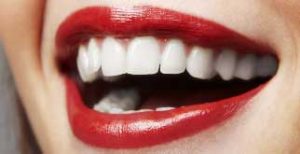Bad Breath, Halitosis What Is It
Halitosis, (known more informally as bad breath ), is an unpleasant, chronic oral condition that can be embarrassing and in some cases cause anxiety as it continues to persist even when you’ve taken steps to avoid or reduce it. In response to this problem, when you step into stores, you’ll find shelves stocked to capacity with a range of gum, mints, mouthwashes and other products designed to fight bad breath. However, many of these only offer a temporary solution and don’t address the causes of Halitosis.
There’s a full and comprehensive explanation of halitosis provided by Wikipedia here.
Halitosis Causes – What Are They?
For many, halitosis remains an unpleasant part of every day, as either a sufferer or living and working with others who have chronic bad breath. The causes of Halitosis are varied, but primarily the symptoms are a proliferation of anaerobic (non-oxygen breathing ) bacteria, thriving in bio film (a sticky film created to protect and ensure their survival) which grows on surfaces within your mouth. When the bio film is left unchecked, it becomes dental plaque, which causes other dental and oral related problems.
Other causes of halitosis can include
- breakdown of food particles in your mouth
- dryness of the mouth (xerostomia)
- smoking or tobacco products
- tooth decay
Halitosis Cures or Remedies – How To Get Rid of Bad Breath?
Although particular health conditions, habits, and foods are among the leading causes of halitosis, as a sufferer of bad breath, you can often improve or eliminate the symptoms with consistent attention to proper dental hygiene.
Regular oral dental health routines recommended below not only combat halitosis or bad breath but also contribute to the long-term maintenance of a healthy mouth, teeth, and gums.
- Scheduling of regular dental checkups to identify and remove plaque or tartar.
- Brushing your teeth and using a tongue scraper twice daily. Eliminate odor-causing bacteria, as soon as possible after you eat.
- Rinsing or gargling with water or mouthwash daily. Supplement your routine with a mouthwash that limits the unhealthy bacteria and instead helps the communities of beneficial bacteria to thrive.
- Flossing your teeth or using an interdental cleaner at least once a day. If using floss daily, make sure it’s between each tooth and along the gum line – where bio-films spread most often.
- Drinking plenty of water daily.Prevent a dry mouth, often a cause of bad breath.
But if regardless of how much teeth cleaning and rinsing with mouthwash, you continue to the suffer from Halitosis or other persistent bad breath problems, and this is something you are concerned about, don’t hesitate to Contact us
Bad Breath Causes
Generally these “bad breath” bacteria are anaerobic (non-oxygen breathing) bacteria. These bacteria live in colonies all over your mouth in a slimy layer called a bio-film. These anaerobic bacteria feed on the protein rich foods that we eat. Elements of protein rich food becomes trapped in mucous. Mucous in the mouth, tongue, throat & sinuses coats these unhealthy Bio-films providing “food” for these anaerobic bacteria. Gases released as a by-product of this process cause bad breath. Bio-films are everywhere in the mouth whether they are healthy or unhealthy.9 reasons why unhealthy bad breath causing Bio-films occur or thrive –
- Poor dental hygiene Food trapping in & around teeth
- Failed dentistry
- Gum infections
- Respiratory tract infections leading to excessive mucous production
- Certain foods, the worst culprits being all dairy products, protein rich foods, garlic, onions, coffee & foods that contain sugar.
- Cigarette & or cigar smoking or chewing tobacco
- Having a “Dry Mouth” (Xerostomia) caused by a multitude of things such as salivary gland problems, “mouth breathing”, caffeine and alcohol intake, recreational drugs, dehydration, prescribed medications. Regarding prescribed medications did you know seven out of the top ten prescribed medicines have dry mouth as a side effect of usage? These are high blood pressure tablets, birth control pills, nasal decongestants, antidepressants, antihistamines, indigestion medication & hormone replacement therapy.
- Acidic foods such as fruit juices & coffee can make “dry mouth” worse.
- Certain illnesses including liver, lung, kidney, sinus & reflux diseases, diabetes.
“Pseudohalitosis” or “halitophobia” is a psychiatric illness where a person may perceive that they have bad breath, but it is not noticed by oral-health-care professionals, friends, family or even extremely sensitive gas chromatography equipment.

